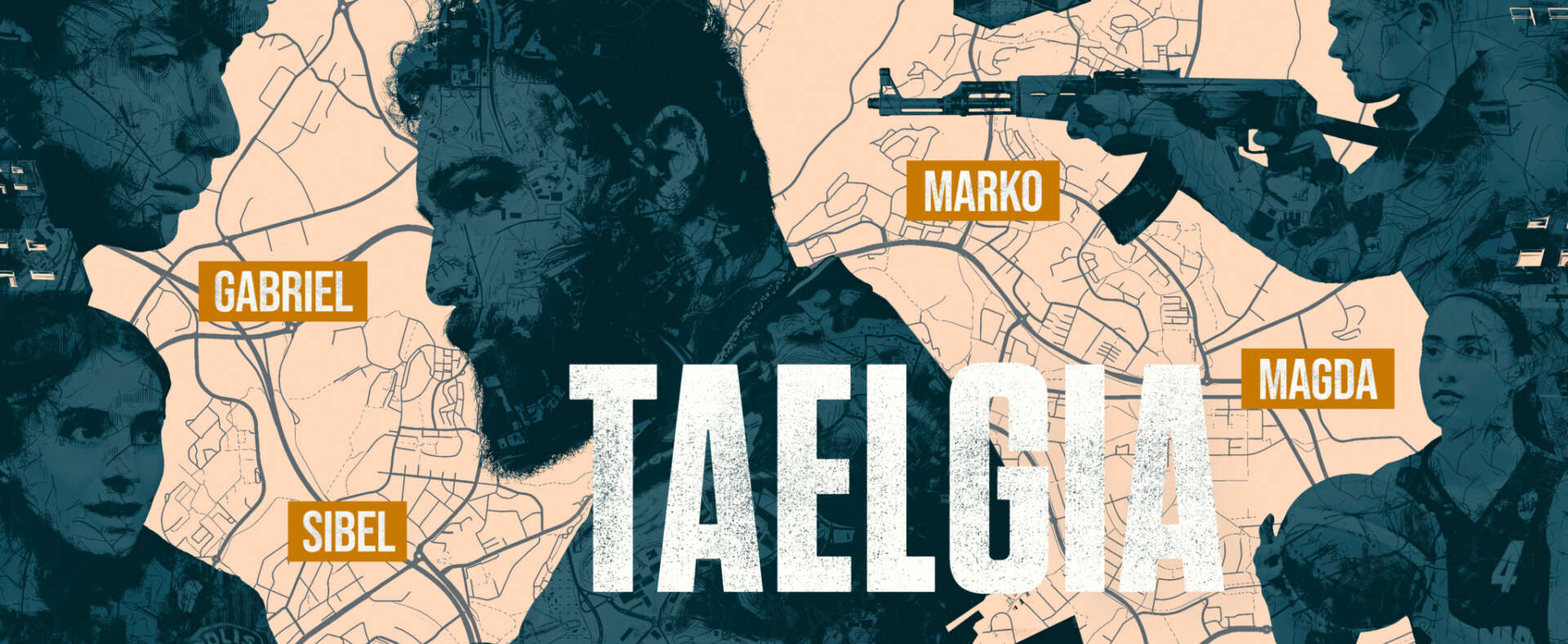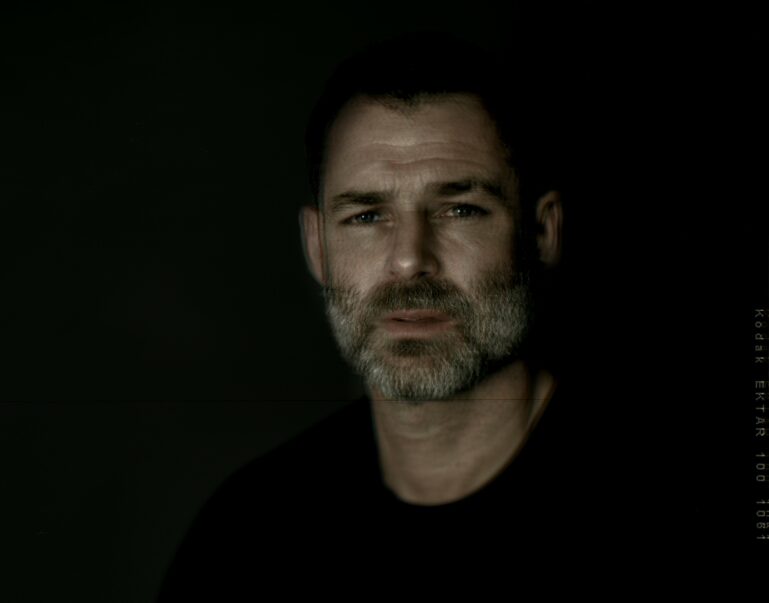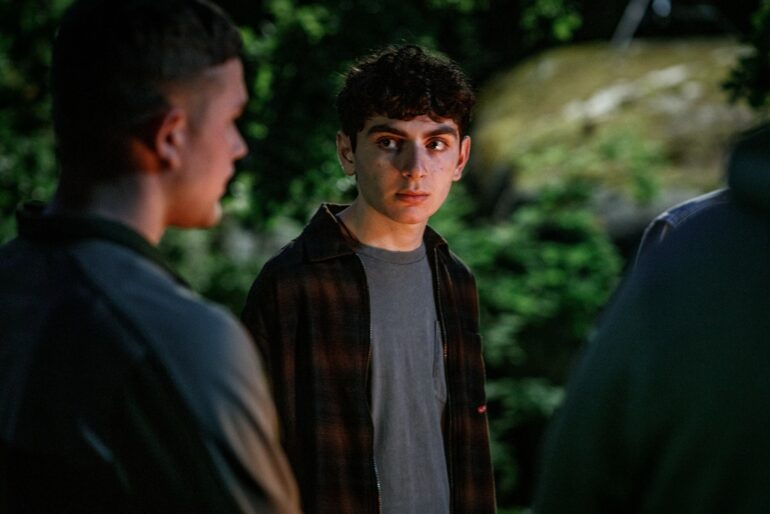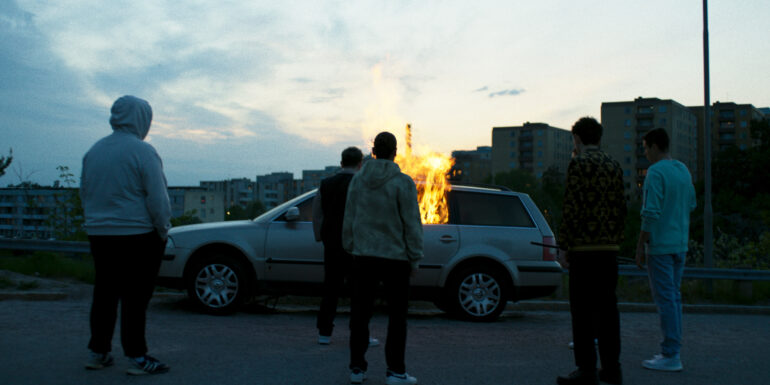
Swedish head-writer/director Jens Östberg spoke to us ahead of the premiere of SVT’s event series Taelgia September 22.
Choreographer turned writer/director Jens Östberg has made his mark on Swedish scripted content with the film Blowfly Park (Flugparken) which earned Sverrir Gudnason a Guldbagge-best actor award in 2015, and the SVT series Filip and Mona (2019), best comedy nominee at the Swedish Kristallen TV awards 2020.
The 6x60’ suspense drama Taelgia is his most ambitious project to date, featuring a burning issue affecting Sweden: gang violence.
Set in Södertälje, the story centres on families, police and criminals, caught in a crossfire of loyalties and duties. Next to the adult criminals are the youngsters, helping out as runners, selling drugs, until they are forced to take on more dangerous missions.
The show follows the young Gabriel, under the influence of petty criminal Marko, while his parents struggle to keep him on the right track. There is also Sibel, the police officer of Syrian origin, caught in the clash between the police and her community, her duty and loyalty to both.
The original story was written by Östberg in collaboration with Pauline Wolff (Partisan, Sthlm Requiem) and Jörgen Hjerdt (Sthlm Requiem, Blue Eyes).
In some of the title roles are Jonay Pineda Skallak (JJ+E), Sara Shirpey (Out of Touch, Top Dog) and newcomer John Hanna.
The show was produced by Mimmi Spång for Banijay Group’s Filmlance International, with Garagefilm International, in co-production with Film Stockholm, SVT, in association with Viaplay, and support from Nordisk Film & TV Fond.
Paris-based Wild Bunch Television handles sales.
How does it feel to launch the SVT show when gang violence is making the headlines not only in Sweden but internationally, after Swedish police chief Anders Thornberg said [September 13] that murders and explosions in Sweden have reached an “unprecedented level”?
Jens Östberg: The development of gang crime in Sweden is very very sad. Yes shootings, explosions have literally peaked. Gang wars are the bloodiest so far-with shootings every day and every night due to different gangs fighting each other over arm and drug trafficking. At this point, it involves kids, mothers, fathers. It’s gone off the rails. It’s shocking. I could not have foreseen this nine years ago when I first pitched the idea to my producer Mimmi.
But the situation is much more complex than what the media is showing. What you see in the news [criminal gangs] relates to small groups.
My ambition with Taelgia which focuses on a particular mid-sized city in Sweden - Södertälje - is to focus on the majority of people living there - families, trying to live as well as they can, in the shadow of gang violence. They are caught -in a pressure cooker, next to the police on one side, criminals on the other side - in a crossfire of loyalty and duty.
Let’s go back a bit to the genesis of the series. This is your biggest series ever. Was it hard to pull it off?
JS: As I said it’s been nine years since I first pitched the idea. It wasn’t an easy journey. But having Mimmi [Spång] at my side was crucial and we go a long way back. She produced my first short film Småvilt [2009], then my feature debut Blowfly Park [2014]. I also made a smaller series before - the comedy drama Filip and Mona [2019] which was pretty successful. SVT said OK your idea is a great arena, but you have to partner with experienced screenwriters.
Pauline Wolff and Jörgen Hjerdt are indeed seasoned writers. How did you collaborate?
JS: They joined the process mid-way. We wrote episodes 1-2 together, then due to various reasons, I took over the writing of episodes 3-4-5-6. But they were instrumental in creating the storyline and developing several B characters.
How much research did you undertake?
JS: I did most of the research myself, made a lot of contacts, including in the Syriac community in Södertälje which is quite large. We needed to get their ‘approval’ in a way. However, we realised in the process that we had to create a distance between reality and fiction. By being too close, we could be at risk of pointing fingers, being perceived as whistle-blowers. So we made a real effort to distance the series from the actual goings-on in Södertälje. And to remain as authentic as possible, we focused on specific aspects, such as how does the police behave, how do petty criminals behave etc.
I’m sure you had to avoid many pitfalls when depicting the Syriac community in Södertälje, not to stigmatise them and give a chance to far right movements to hijack the topic to feed their toxic racist and anti-immigration narrative…
JS: Yes we had to walk on a tightrope, master a very delicate balance.
You are pointing the finger at two major challenges. First of all, how not to stigmatise a particular foreign community. As briefly explained earlier, we did this by focusing on families - 99% of the people - just trying to make a good life for themselves.
Regarding the danger of feeding the hate narrative of far-right movements, we have an expression in Sweden that the right wing uses to ridicule liberals, left or centre-right people with politically-correct views: the ‘godhetsignalering’ (virtue signalling).
I knew that if the series would be watched by right wing people and be seen as shying away from reality, they would call the series ‘godhetsignalering’- so it was super important to break some stereotypes. For instance, we used the character of Gabriel’s father-himself of Syrian origin - who expresses radical views of intolerance, to give a nuanced perspective. The hatred speech towards criminal gangs he makes would have resonated differently if it came from a white police officer.
This is what I witnessed a lot in Södertälje-first generation immigrants who are sick and tired of having criminals hijacking their identity and giving a bad image of their community when they’re just trying to get on with their life.
Where was the series shot?
JO: We were looking for the best locations and shot in south of Stockholm and in Södertälje. The city is very unique with many orthodox churches, homes to big congregations of orthodox Syriacs.
Can you say a few words about the cast? You obviously have a mix of pro and non-pro actors….
JO: We knew that for certain parts we needed trained actors, but also talented amateurs especially for the young characters. The amateurs in reality come with a baggage, and you could almost say that they had trained for their part.
John Hanna who plays Gabriel-the main character - was 15 when he came to the audition after an open call. He doesn’t say much as his character is an observer in the series, an open soul, quite impressionable. The character of Marko [Jonay Pineda Skallak] is actually respectful of him and a good friend, despite being a petty criminal.
Regarding Sara Shirpey, I met her on another show The Gambling Scandal - where she had a small part. I felt she would be perfect for the role of Sibel, the police officer. I was so happy that she wanted to do the part.
You worked more than 20 years - in choreography and dance before switching to filmmaking. How has this influenced your directing style?
JO: Depth, movement, physical dynamics are important to me. It doesn’t automatically mean that actors have to move all the time, but I want to see a clarity, a purpose on stage. I love when it’s chaotic, but also when it’s clear and simple.
For me authenticity is quintessential. Actors’ dialogues and behaviour can’t feel like a line in the script. And I try to convey this to the actors. The script is like a blue print, a guideline. My method for the actors is: you’re not allowed to say exactly what’s in the script, but stick to its essence. You have to read it, understand, it, internalise it and come up with something that has a meaning to you. If the result ends up exactly like in the script, it means that the script has a true resonance.
Since I was the head-writer on the show, I could be flexible and adapt according to what was happening on set.
Could you discuss your visual style and collaboration with cinematographer Petrus Sjövik who worked on the Swedish film Exodus and HBO Max’s Beartown?
JO: It was the first time we worked together. I felt he would be able to combine two aspects that I thought were key: a naturalistic, mostly handheld approach to catch vulnerability, authenticity. He is also good at composition and lighting. The series for me needed some visually pleasing, poetic sequences, as the theme is heavy.
What were your inspirations?
JO: I’m a big fan of Terence Malick, but also Jacques Audiart - Le Prophète for instance, and a strong reference for the show was Ladj Ly’s Les Miserables. The film feels alive, hard-hitting, you feel that the summer is very hot and something is going to blow up. With our series, I wanted to create a similar feeling, of a pressure cooker about to explode.
What do you hope the audience will take away from watching the show?
JO: I hope the audience will love the characters. Even if we operate within the crime genre, I wanted to create the ‘warmest’ crime series possible, show the heart in all characters-even the bad guys.
We have a lot of polarisation in Europe, in the US, with democracies being split ideologically to the point where people hardly speak to each other. I hope the series will be a call for more love and tolerance.
WATCH THE TRAILER



